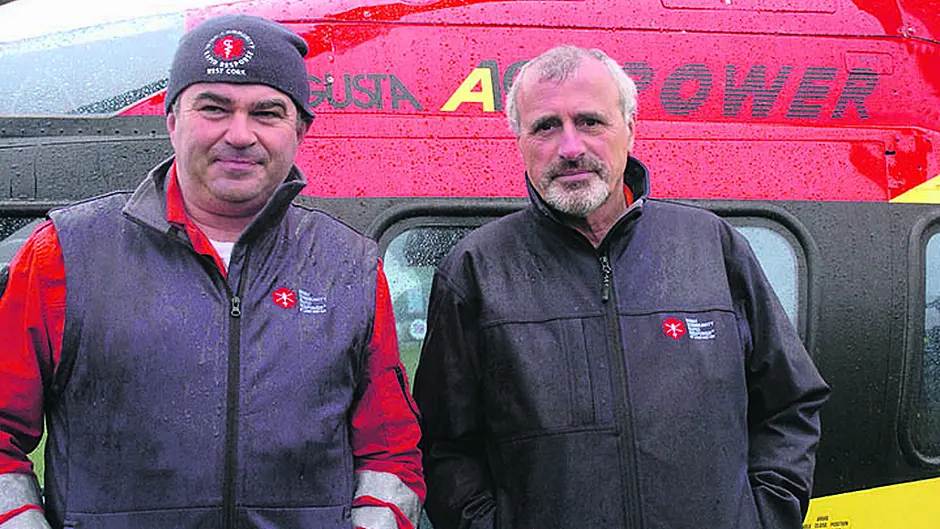The Baltimore-based chief executive of the new air ambulance service which visited West Cork last weekend, has rejected claims that it will not meet international standards.
THE Baltimore-based chief executive of the new air ambulance service which visited West Cork last weekend, has rejected claims that it will not meet international standards.
John Kearney of the Irish Community Rapid Response (ICRR) charity rejected the claims, which have come from several international medics, that the new service needs to be doctor-led.
And he added that their comments ‘have not helped’.In an open letter to the government, a group of international consultants – many of whom are originally Irish but now based in Britain, America, Australia, New Zealand, Canada and mainland Europe – have argued that the community rapid response service should have a doctor and a paramedic onboard. Current plans are for the service to have an advanced paramedic and an emergency medical technician on board.
In response, John Kearney pointed out that the road ambulance service in this country does not have doctors on board and it functions very well.
Furthermore, he said, all the community air ambulances in the UK started with an advanced paramedic, but the majority of them evolved, over a period of time, into a doctor-led model.
‘That is what we are proposing here in Munster,’ said Mr Kearney. ‘For the last five years, we have, in Athlone, a helicopter service that is run in partnership with the Department of Defence and the National Ambulance service.
‘That service provides an advance medic and an emergency medical technician, which has treated over 2,5000 patients – with successful outcomes.
‘Here, we are starting with the exact same model as Athlone, but it is envisaged that it will be dedicated to covering the south of the country which, up until now, did not have a dedicated service.’
Following a four-week training period, the Irish Community Rapid Response helicopter service will become operational, but, as a charity, will need annual funding of €2m.
Mr Kearney said he believes the service will, in time, evolve to include a critical care paramedic, which is similar to the UK model in delivering advanced life care.
‘We have to start somewhere. For years, there were talks of an air ambulance but nothing happened. Now we have it, we should nurture and develop it,’ he added.
Speaking on behalf of the ICRR, Mr Kearney said: ‘It is our proposal to provide this service in conjunction with the Department of Health and the National Ambulance Service.
‘How it works is that we supply the helicopter, the fuel, the administration and the logistics, and the Department of Health and the National Ambulance Service provide the medical personnel and the medical governance that oversees it.’
Mr Kearney told The Southern Star: ‘What the consultants are saying will not prevent the service from getting off the ground because it is so badly needed. But, I can say this, their comments have not helped.’
Mr Kearney pointed out that there is a shortage of doctors in the country at the moment and to run one air ambulance, seven days a week, would require 14 doctors.
‘To run Athlone and this new service would mean 28 doctors on rotation and I, for one, am not going to be responsible for seeking to take doctors away from frontline services.’
In reference to the fact that the consultants are not based in Ireland, Mr Kearney said: ‘I’d welcome these doctors back to fill the vacancies in our hospitals.’








